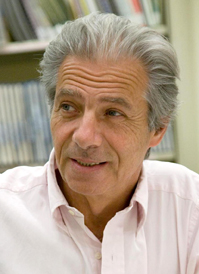Nelson Charest

When Jacques Baron was 16 years old and travelling from Nantes to Paris by train, he wrote two lines of poetry that would change his life. (The lines were: Maintenant visé d’une folie douce / Je tourne le pouce d’une autre pensée) His older brother, who was five years his senior, was travelling with him at the time. He believed in his young brother’s talents and, upon their arrival in Paris, introduced Baron to such surrealist artists as Louis Aragon. Aragon read Baron’s lines of poetry and immediately invited the young poet to join his group for their first public demonstration in April 1921. Baron became the youngest surrealist poet and would become Aragon’s protegé. He also became the first surrealist to join the Communist Party, and the first to leave it, in 1929, with the publication of the second surrealist manifesto by André Breton. Baron’s “adventure” was to be brief but great for the man who became known as the “Rimbaud of Surrealism” and whose published works include the collection L’Allure poétique (1924), praised highly by Aragon, as well as the collection Paroles (1929) and the novel Charbon de mer (1935).
The adventure continues several decades later in Ottawa. Jean-Marie Baron, Jacques Baron’s nephew and the son of the brother who got the writer started, recently visited the University of Ottawa library to consult the most extensive Jacques Baron archive in the world. Jean-Marie Baron is an art critic and author of an interview with Joseph Kessel (Ami, entends-tu…, La Table Ronde, 2006). He was visibly moved by the documents he found. “I am here essentially for sentimental reasons,” noted Baron. He said he learned about the archive in Ottawa not long after it was created. “I can say that he [Jacques Baron] was deeply touched, during a very lonely time in his life, by the fact that there was interest in him and that it was here, for he had a strong affection for Canada. I am very pleasantly surprised to see the richness of the collection. I didn’t think there would be so many letters, letters from Max Jacob, Cocteau, Jacques Doucet….”
Over the last 30 years, various donors have contributed to the archive, notably former professors of the Département de français. The archive consists of six boxes of photos, letters, drawings, water colours and various documents that once belonged to Jacques Baron. Today, his nephew intends to continue the adventure as he plans an exhibition at the Nantes library, an exhibition that will include many documents. Baron hopes that the exhibition will one day come to Ottawa. Poetry readings will also be part of the activities and some publications will be reprinted to mark the occasion.
The Jacques Baron archive is a gold mine for professors and students, particularly for students wishing to write their thesis on this author still relatively unknown to us today.